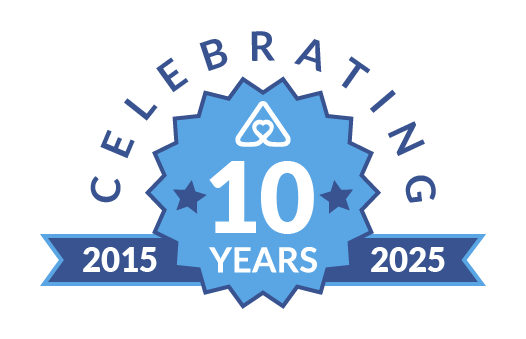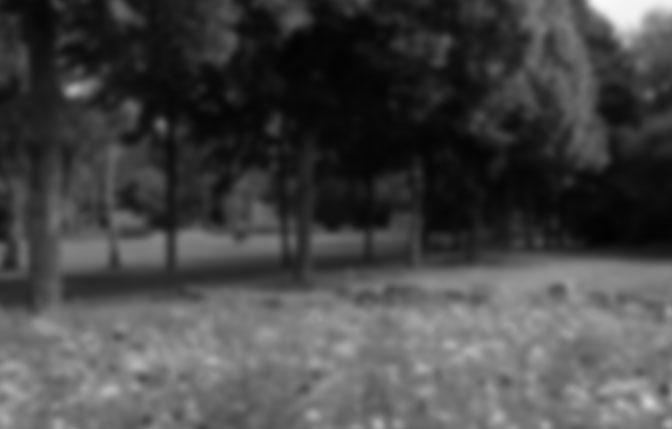Team of Caring Professionals
We are a team of caring and compassionate professionals working together to provide the best possible care for you and your loved ones
Please submit this form below and we will chat shortly!

Always Best Care of Greater Bethlehem combines national strength and standards with local accessibility and personal service. Providing senior living solutions including in-home care and related services throughout the Lehigh Valley, Always Best Care has been helping families in the area since 2012 and nationally since 1996. Our entire team has your loved one’s best interests at heart, and we work with you to ensure that exceptional service and care is provided to all family members.
We have strong relationships with area hospitals, social workers, senior communities, and senior resources throughout the area. Caregivers at Always Best Care of Greater Bethlehem are thoroughly screened, trained, and insured to provide the safest and highest level of care. There is no charge for a Care Consultation or for senior community referral and placement services*. We are here to serve your needs and we can help! We are experts in senior care. Contact us today with any questions you may have.
What makes Always Best Care different? We offer a continuum of care for seniors…


We match our clients with the most appropriate living options

We are a team of caring and compassionate professionals working together to provide the best possible care for you and your loved ones
We have worked with thousands of seniors and their families across the U.S. and Canada, providing the best service each step of the way
Our team of professional caregivers has a proven track record of providing expert care to seniors and people with special needs
We help people with specific needs maintain a safe, independent, and dignified lifestyle with in-home care, senior community referral services and special care services
Discover our services to find the right care solution for you and your loved ones
Expert care services, delivered in the comfort of your home
Referral services designed to help you find the right senior living community
Specialized health monitoring services, powered by advanced healthcare technology
Helping veterans navigate the financing options available from the VA to receive the best care possible
Your local Always Best Care team helps families throughout Bethlehem and the surrounding areas


ALWAYS THERE FOR YOU ALWAYS BEST CARE
“Always treated with respect and they showed care for my mother. Everyone was pleasant when”
“Always Best Care Senior Services provided very professional services that resulted in finding the best”
“If your loved one needs in home care, I highly recommend Always Best Care of”
“If your loved one needs in home care, I highly recommend Always Best Care of”
“I am a current client of this provider Always best care cared for my mother. They”
“Ken Good was so helpful and knowledgable when my elderly father needed in-home care. He”
“Ken and Rebecca have been extremely helpful during the process of finding in-home care for”
“Ken is a fantastic provider of in-home care in Doylestown. I highly recommend his team.”
“Ken was the first person I really talked to when I found out my father”
“Excellent in every respect.”
“The support provided by Ken and Rebecca Good (and all of their team) has been”
“Very few businesses or even people come from a place of compassion and a good”
“I am a current client of this provider Ken and Rebecca go above and beyond”
“Ken and Rebecca were a godsend in our search for care for our elderly father.”
“Very good, prompt attention to an unexpected need for day care in home for Mother-in-law.”
“Ken & Rebecca were very helpful & knowledgeable with resources in helping me care for”
“Both Rebecca and Ken were very easy to talk with and were very interested in”
“I am a current client of this provider Always Best Care provides extremely caring, compassionate help”
“Your loved ones will be in great care with Always Best Care of Greater Bethlehem.”
“Always treated with respect and they showed care for my mother. Everyone was pleasant when I would call about different circumstances.”
“Always Best Care Senior Services provided very professional services that resulted in finding the best personal care facility fit for my mother. They have a passion for helping seniors and prioritize the health and well-being of their clients over everything else. I would highly recommend them when you are in a position of finding senior care services for your loved ones.”
“If your loved one needs in home care, I highly recommend Always Best Care of Bethlehem. Wonderful staff and excellent caregivers that go above and beyond what is expected of them!”
“If your loved one needs in home care, I highly recommend Always Best Care of Bethlehem. Wonderful staff and excellent caregivers that go above and beyond what is expected of them!”
“I am a current client of this provider Always best care cared for my mother. They have been amazing. My mother really likes her caregiver.”
“Ken Good was so helpful and knowledgable when my elderly father needed in-home care. He actually came to the rehab center to meet us where my father was getting physical therapy after a fall. This way he was able to accurately access how much care my father would need and which caregivers would be the right fit. We were afraid we’d have to move him to a nursing home but fortunately we were able to set up in-home care. It’s been four months now and we have been very happy with the caregivers who have been assigned to my father. Always Best Care is very responsive and flexible in adjusting hours as needed, somehow managing to keep the caregivers my parents have bonded with even though the hours have been reduced. We are happy our parents are able to age in place with care as they need it.”
“Ken and Rebecca have been extremely helpful during the process of finding in-home care for my in-laws. They have been sensitive to our needs, diligent in their efforts to provide the best possible care, and consistent in their follow-up to see if things are satisfactory. We have been executing this process from out-of-state and the process has been very smooth. Through phone calls and face-to-face meetings when possible, both Ken and Rebecca have been professional, knowledgeable, and a pleasure to work with. I would highly recommend Always Best Care Senior Services.”
“Ken is a fantastic provider of in-home care in Doylestown. I highly recommend his team.”
“Ken was the first person I really talked to when I found out my father was given a year to live. Instead of immediately looking at me like a business opportunity, he treated me like a close friend. He listened and treated me with complete kindness.. I have gotten to know Ken and his wife Rebecca and I can easily say that they are two of the most wonderful people I have ever met. There is nothing in this world I wouldn’t trust them with. Especially the care of a loved one.”
“Excellent in every respect.”
“The support provided by Ken and Rebecca Good (and all of their team) has been invaluable as the family navigates through dealing with the impact of our sister’s illness to all of us. The structure with using ABC’s online portal to evidence our sister’s care is extremely beneficial in ensuring strong and coordinated communication. It is truly appreciative this technology is available and utilized by ABC. For those dealing with identifying care for a loved one, you would be smart to contact Always Best Care of Upper Buxmont.”
“Very few businesses or even people come from a place of compassion and a good heart. Always Best Care does. The client always comes first as does their health and well-being, and the family seeking the best for their loved ones. Thank you Ken for all you did for my parents!”
“I am a current client of this provider Ken and Rebecca go above and beyond for their clients, as do their staff. They handled emergent situations for my grandmother when we were on vacation – staying with her the entire time at the hospital. Ken also did significant research for our decision to put her in an assisted living community. I highly recommend Always Best Care.”
“Ken and Rebecca were a godsend in our search for care for our elderly father. Both Ken and Rebecca were incredibly compassionate, empathetic and caring. In addition, they were knowledgeable and had a wonderful process for determining the needs of the family, the needs of the specific individual and finding an appropriate match for a caregiver to meet those needs. I can’t say enough about the services provided by Always Best Care. Ken always went above and beyond, he knew the questions to ask, and how to navigate all the red tape of various organizations (Veterans Administration, etc.) AND he diligently does site visits to the facilities he references so he is able to speak from experience about the quality of care at the facilities under consideration. If you are in need of advice and assistance in caring for a family member I recommend Ken and Rebecca and Always Best Care with no reservations.”
“Very good, prompt attention to an unexpected need for day care in home for Mother-in-law. Ken is very well versed in available providers and other services needed at this time.The day care providers dealt well with her memory problems.”
“Ken & Rebecca were very helpful & knowledgeable with resources in helping me care for my Mom during an extremely difficult time. It was great finding two people who cared & listened to my situation. I never felt alone in my difficult decision making process.”
“Both Rebecca and Ken were very easy to talk with and were very interested in getting to know my father. They went out of their way to help us as our plans changed from in home care to personal care. They explained the process and were with us every step of the way to answer questions and provide support. I would use them again in a minute.”
“I am a current client of this provider Always Best Care provides extremely caring, compassionate help for my mom, I live out of town, and can't be there myself very often. But this business goes all-out to take care of my mom. I don't know what we would do without them.”
“Your loved ones will be in great care with Always Best Care of Greater Bethlehem.”
Discover our porfolio of technology and special care services, designed to cater to the needs of you and your loved ones.
A computerized balance assessment tool that provides an objective, accurate, and reliable fall risk assessment
Monitoring and reporting of vital health signs and 24/7 access to a clinical call center
Always Best Care helps seniors and their family through the entire process. Our care coordinators are local and have in-depth knowledge of our senior living partners and services.


We are very proud of our awards and recognitions of excellence in the senior care industry

Our passion for helping people maintain a safe, independent and dignified lifestyle represents the strong foundation of
Always Best Care
Our employees are our own – not contractors. Caregivers are thoroughly screened, trained and insured. We are dedicated to exceeding your expectations…always.
Whether you are an experienced caregiver or looking to launch your career, contact us today to learn about opportunities that may be available in your area


It’s becoming more and more common for families to live far apart from each other, and leaving an elderly relative alone at home can be a major source of anxiety if you’re not nearby. Always Best Care provides the reassurance you need that your loved ones are safe and happy, with a compassionate caregiver available in case of an emergency. We’ll help them handle their daily tasks so that you can manage your own life with confidence and peace of mind. In addition, home care is often considered a healthier and more affordable option for families when compared to long-term nursing facilities.
Choosing an in-home senior care provider can be a daunting task. However, there are a few guidelines to keep in mind. First, ask your friends and family for recommendations. If you’re unable to get any suggestions, search for local and state organizations that recognize the best providers in the industry. Doing so can help narrow down a shortlist of home care agencies. Next, set up meetings with your top choices and ensure that they meet your criteria. Don’t forget to ask your senior for their opinion, too. Doing so will help you make an informed home care decision.
When hiring an in-home care provider, it’s important to ensure that they are insured to protect you and your loved one. Always Best Care not only provides our clients with insurance coverage but also Worker’s Compensation. That way, in the unlikely event that an accident occurs while a caregiver is working in your loved one’s home, you are protected against any claims or damages. These protections not only benefit you and your loved one, but also directly benefit our caregivers, enabling us to attract some of the most skilled and compassionate individuals for Home Care in Bethlehem.
In the mid-90s, Always Best Care founder Michael Newman grew frustrated by the lack of resources available for seniors in his community. That frustration helped him shape a vision: to create a home care company that would provide trusted care, compassionate support, and professional advice for seniors and their loved ones. In 1996, Michael channeled his frustration into founding Always Best Care, which has since become one of the nation’s leading providers of in-home care for seniors. Today, people with passion continue to make Always Best Care what it is today. While times may change, our company’s commitment to compassionate home care will always remain the same.
To provide the best home care in Bethlehem, we believe that it’s crucial for seniors and their caregivers to build a strong relationship that is fortified with trust. Without it, all parties can suffer. However, at Always Best Care, our caregivers are allowed requested vacations. There may also be times when caregivers become ill. In such cases, a substitute caregiver takes responsibility for your loved one’s care. We inform the substitute caregiver about all your loved one’s likes and dislikes to minimize disruptions. If additional care is required in the morning, afternoon, and evening, we will do our best to accommodate.
We understand that many seniors can lead mostly independent lives, but occasionally they may need assistance. At Always Best Care, we’re thrilled when we can schedule a caregiver in a very short turnaround. That’s why we’re happy to offer part-time in-home care for seniors in Bethlehem. Our team of compassionate caregivers can be `available to assist your senior loved one morning, noon, and night.
Our home care providers in Bethlehem can assist with a wide range of services to help your senior live a fulfilling, independent life at home. Some of our most requested home care services include the following:
• Light Housekeeping
• Medication Reminders
• Community Activity Escorts
• Companionship
• Meal Prep
• Nutrition Monitoring
• Incontinence Care
• Transportation and Errand Running
• Dressing and Grooming
Contact our Always Best Care office today to learn more about the additional home care services we offer.
We believe that safety is one of the most important aspects of home care in Bethlehem. As such, we train our caregivers to assess your senior loved one’s home to identify any potential hazards that could lead to accidents. Before providing in-home care services, we will perform a safety assessment of your loved one’s property to identify ways to make their home safer. This may include introducing grab rails in hallways or showers or making other small changes. To ensure ongoing safety measures are met, your caregiver will continue to monitor your senior’s mobility and recommend any necessary equipment or technology to make their life easier and safer.
Yes. We understand that, with time, a senior’s home care needs can change. If they do, your Care Coordinator will be there to re-evaluate and adjust your non-medical home care services in Bethlehem as needed.
Our senior home care providers in Bethlehem are dedicated to delivering compassionate, exceptional care. That dedication often translates to specialized training and preferred areas of focus. Please don’t hesitate to inform us of any unique health needs or requirements your loved one has during your care consultation with Always Best Care.
Explore the latest insights, trends, and tips from the home care and caregiving industry
We have partnered with the best groups and institutions to provide the best care for you.